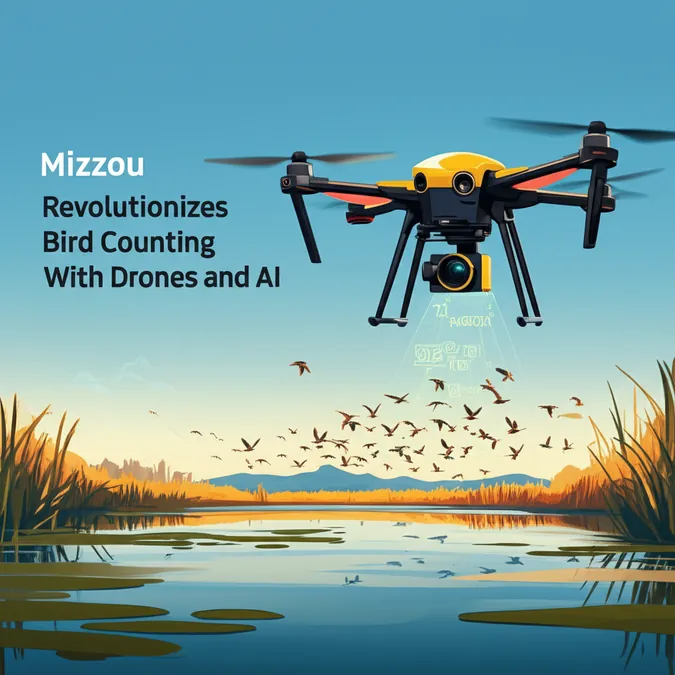Developer Offer
Try ImaginePro API with 50 Free Credits
Build and ship AI-powered visuals with Midjourney, Flux, and more — free credits refresh every month.
Why We Must Regulate Artificial Intelligence Now
Content Warning: This article contains a reference to suicide.
Artificial intelligence is no longer science fiction; it's deeply integrated into our daily lives. It helps write essays, trade stocks, diagnose diseases, and curate our media. At Emory University, AI-themed courses are available across nearly every discipline, and with about 90% of college students using AI tools, its presence is undeniable. As this transformative technology evolves, we must actively shape its future before it shapes ours.
We are at a pivotal moment where the line between human and algorithm is blurring. It is crucial for communities like Emory to recognize AI's exponential growth and advocate for government regulations. We need rules that curb AI's potential for harm and exploitation while encouraging its capacity for innovation and public good. The time for passive observation is over if we want to cultivate responsible leaders who can guide humanity forward.
The Double-Edged Sword of AI
AI's rapid advancements have brought significant benefits to many industries. In healthcare, machine learning models can detect cancer earlier than human doctors and accelerate drug development. In environmental science, predictive algorithms are used to track pollution and map the spread of wildfires. AI also streamlines administrative tasks and handles tedious data analysis, demonstrating its power to improve lives.
However, without proper oversight, these same technologies can be misused for profit and worsen existing problems. The immense electricity required to power large language models is a growing concern, especially with climate change. A projection from the University of California, Berkeley suggests that by 2028, AI could consume as much electricity as 22% of all U.S. households. Much of this energy currently comes from nonrenewable sources, adding to carbon emissions and environmental strain.
The Hidden Environmental Costs of AI
Before you type a prompt into ChatGPT, consider the environmental impact. The data centers that power AI require enormous amounts of water for cooling, with a large center potentially using up to 2.1 million liters of fresh water daily. As natural resources become scarcer, it is imperative that these data centers transition to renewable energy. Technology is ultimately useless without a healthy planet to sustain it.
The Human Toll of Unregulated AI
Ethical lapses in AI development also have a direct impact on our well-being. The exploitation of loneliness through AI companions can foster one-sided, harmful relationships, even leading to tragic outcomes. For example, Character.AI is facing a lawsuit alleging that one of its chatbots contributed to a 14-year-old boy's suicide. When machines are designed to mimic affection without regulation, the boundary between user and algorithm becomes dangerously blurred.
Beyond emotional manipulation, generative AI has created a severe nonconsensual pornography problem. This technology is used to create realistic fake nude images to humiliate or blackmail individuals, including celebrities, politicians, and journalists. A startling one in four teenagers report seeing AI-generated explicit content, often of people they know. This unregulated digital space allows sexual crimes and revenge porn to thrive, perpetuating misogyny online. Existing laws need to be expanded to target not just the distribution of such images, but their initial creation.
A Call to Action: How We Can Shape AI's Future
As AI continues to reshape our world, robust regulations are essential to protect our society. Governments must enforce transparency and accountability from tech companies. This includes requiring companies to disclose the data used for training their models, the energy consumed to power them, and the safeguards in place to protect user privacy and the environment. Furthermore, independent oversight bodies should be established to audit AI systems and ensure they meet ethical standards before they are released to the public.
Change also needs to happen at the local level. Emory University has shown a commitment to this issue through initiatives like the AI.Humanity Initiative, the Center for AI Learning, and by joining the U.S. AI Safety Institute Consortium. However, many students still use AI tools without fully understanding the associated risks.
To become more informed, students can start by reading OpenAI's Terms of Use, attending lectures on ethical AI development, and supporting organizations like the Algorithmic Justice League that fight bias in AI systems.
Furthermore, local elections have a direct impact. Members of the Georgia Public Service Commission, responsible for approving power plants and data center construction, are up for election on Nov. 4. Candidates like Alicia Johnson and Peter Hubbard advocate for green energy. With typically low voter turnout, every vote counts in pushing for necessary reforms, especially as DeKalb County has a temporary moratorium on data center applications.
Technological progress should complement humanity, not come at its expense. While AI has the potential to revolutionize our world for the better, it could cause immense harm without proper regulation. It’s time to shift our focus from what AI can do to what it should do.
If you or someone you know is having thoughts of self-harm or suicide, you can call Student Intervention Services at (404) 430-1120 or reach Emory’s Counseling and Psychological Services at (404) 727-7450 or https://counseling.emory.edu/. You can reach the Georgia Suicide Prevention Lifeline 24/7 at (800) 273-TALK (8255) and the Suicide and Crisis Lifeline 24/7 at 988.
Compare Plans & Pricing
Find the plan that matches your workload and unlock full access to ImaginePro.
| Plan | Price | Highlights |
|---|---|---|
| Standard | $8 / month |
|
| Premium | $20 / month |
|
Need custom terms? Talk to us to tailor credits, rate limits, or deployment options.
View All Pricing Details

